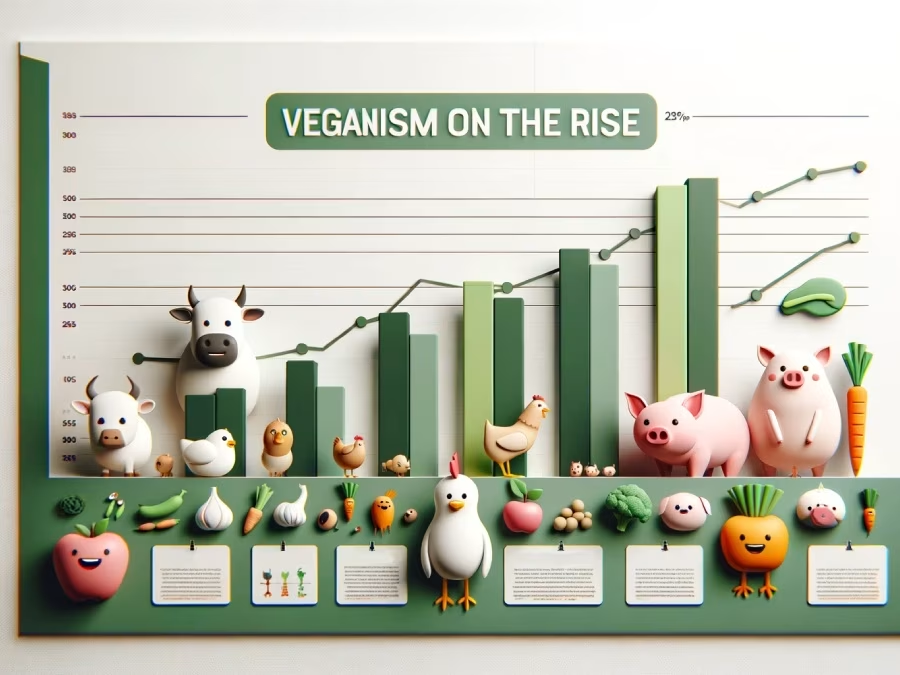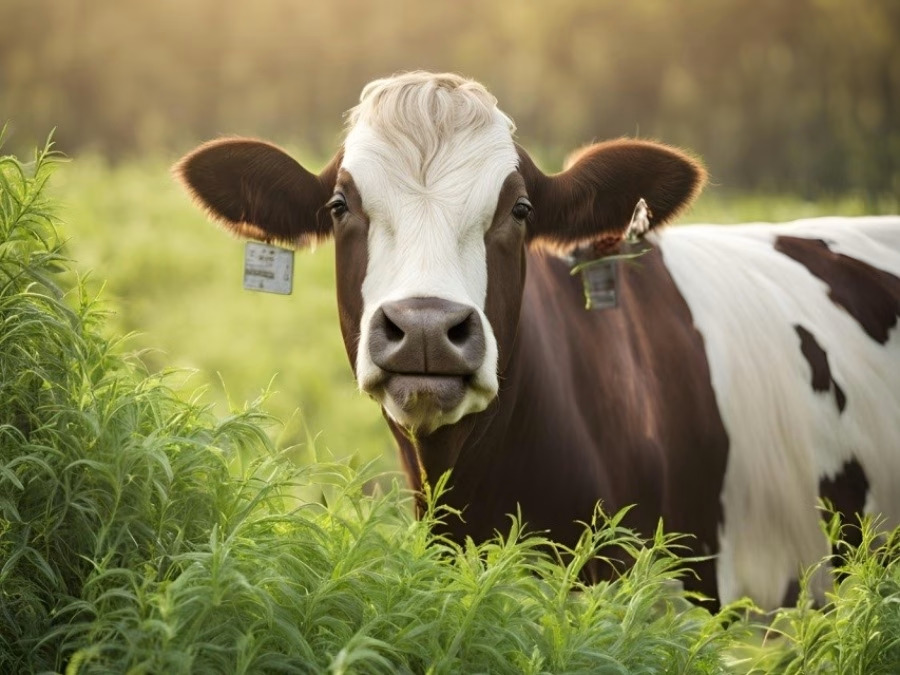The vegan movement, once a fringe lifestyle choice, has transformed into a global phenomenon. This article explores the multifaceted growth of veganism, backed by recent statistics and a deeper understanding of its driving forces.
Introduction
The evolution of veganism from a fringe lifestyle to a global phenomenon is a testament to changing perspectives and priorities in modern society. This exploration into veganism's growth is not just about the numbers; it's about understanding the underlying shifts in attitudes, beliefs, and values. I invite you, the reader, to reflect on these changes and share your thoughts on this transformation.
The Historical Context of Veganism
Veganism is not a new concept. Its roots can be traced back to ancient civilizations, where many cultures adopted plant-based diets for health, religious, or ethical reasons. However, the modern vegan movement began in the mid-20th century as a response to concerns about animal welfare, environmental sustainability, and health. Understanding this history helps us appreciate the depth and breadth of the current vegan wave.
Consumer Behavior and Market Growth
The surge in veganism is reflected in changing consumer behaviors and market growth. Plant-based dairy and meat sales exceeded $29 billion in 2020 and are projected to reach $162 billion by 2030. This is not just a trend in Western countries; it's a global phenomenon with significant increases in Asia, Australia, and Canada.
The rise of veganism globally is evident through various statistics and trends:
United States: There has been a significant increase in veganism in the U.S. In 2014, only 1% of U.S. consumers claimed to be vegan, but by 2017, this number rose to 6%. As of 2022, around 5% of respondents in the U.S. were vegan. A study by Ipsos Retail Performance revealed a 30-fold increase in vegans in the United States from 290,000 in 2004 to almost 10 million in 2019.
United Kingdom: In the UK, the number of people identifying as vegans in 2016 increased by 360% compared to a decade earlier.
Canada: There has been a 250% increase in vegetarians, with over 2.3 million vegetarians and 850,000 vegans as of 2020. Canadian Dietary Guidelines, published in 2019, emphasize eating plant-based proteins over animal-derived ones.
Global Market Growth: The market for plant-based dairy and meat products was over $29 billion in 2020, projected to increase to $162 billion by 2030. This indicates that plant-based meat and dairy alternatives constitute nearly 8% of the global "protein foods" market.
Plant-Based Milk: Plant-based milk accounts for over 15% of all global milk sales, a significant increase as dairy milk sales decline. The non-dairy milk market is expected to reach $31.28 billion in 2025, up from $21.44 billion in 2021.
Plant-Based Meat: The plant-based meat alternatives industry has grown more than 200% since the beginning of the COVID-19 pandemic. Major fast-food chains like McDonald’s and Burger King have added plant-based items to their menus, reflecting this growing trend.
These statistics illustrate a global shift towards veganism and plant-based diets, driven by various factors including health, environmental concerns, and animal welfare.
Technological Advancements in Food Production
Advancements in food technology have played a crucial role in the rise of veganism. Innovations in plant-based meat and dairy alternatives have improved taste, texture, and nutritional value, making them more appealing to a broader audience. These advancements have also made it easier for consumers to adopt vegan diets without feeling deprived of their favorite foods.
Global Health Trends
Health concerns are a major driving force behind the shift to veganism. Studies link plant-based diets to lower risks of heart disease, obesity, diabetes, and certain cancers. Prominent health organizations worldwide now recommend plant-based diets for their health benefits.
Ethical Considerations and Animal Welfare
Ethical concerns about animal welfare have always been at the heart of the vegan movement. Awareness of factory farming practices and animal cruelty has increased, leading more people to choose veganism as a way to oppose these practices.
Environmental Impact and Sustainability
The environmental impact of meat production is well-documented. Veganism offers a sustainable alternative, with lower greenhouse gas emissions, reduced water usage, and less land needed for food production. This aspect of veganism is particularly appealing to environmentally conscious consumers.
The Cultural Shift and Social Media Influence
Social media has played a significant role in popularizing veganism. Influencers and celebrities endorsing vegan lifestyles have brought the movement into mainstream consciousness, making it more accessible and aspirational.
Future Projections and Challenges
Looking forward, veganism is expected to continue its upward trajectory, but challenges remain. Accessibility, affordability, and cultural acceptance are key factors that will determine the future growth of the movement.
Conclusion
The rise of veganism is a complex phenomenon driven by a confluence of factors. Its growth reflects a broader societal shift towards more sustainable, ethical, and healthy lifestyles. As the world continues to grapple with health, environmental, and ethical challenges, the relevance and appeal of veganism are likely to increase, shaping our food systems and choices in profound ways.




















